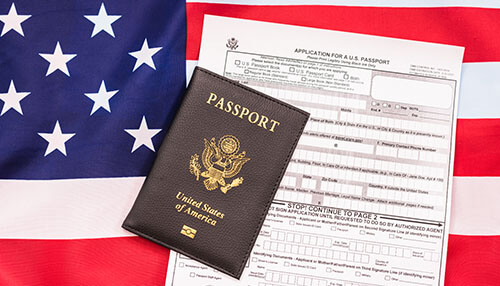Many Americans looking to move abroad see the UK as a very attractive alternative and are looking up settlement options, either temporary or permanent.
However, the path of moving from the U.S. to the UK is not an easy one to tread. You may want to contact UK immigration lawyers with the required expertise and knowledge to help you overcome all the legal hurdles that may come your way.
In this short guide, we will attempt to walk you through some general guidelines to get you started.
Relocating to the UK from the U.S. – Is It Possible?
It’s entirely possible as a U.S. citizen to move to the UK, but you may need to get ahold of a visa if you plan on staying for six months or beyond.
The visa you will apply for is wholly dependent on your particular situation and the purpose of your visit. Some of these purposes may involve work, study, family reunions, or business. If there is more than one purpose, try to ascertain the route that best fits your particular goals so that you don’t run into issues down the road.
Provided that you fulfill the criteria for obtaining a visa, you should be able to settle in England, Scotland, Northern Ireland, or Wales, with some rare exceptions.
Obtaining British Citizenship
Various situations could entitle you to British citizenship, which is the ideal way to earn access to UK soil.
For example, if one of your parents was born in the UK and was registered as a British citizen or obtained British citizenship via settlement, you can claim UK citizen status. This is also applicable if you were born outside the UK after 1983 and your parent was a British citizen otherwise than by descent (according to the British Nationality Act of 1981).
Another way to claim British citizenship is by what’s commonly called “double descent”, provided that you were born abroad before January 1, 1983, and one of your parents is British, at least by descent.
Furthermore, there are other types of British nationality, other than British citizenship, that don’t automatically qualify individuals to live in the UK (as odd as that may seem).
The subject of British nationality might seem a bit strange and “foreign” to many people and may deserve a whole separate article. You can also ask a competent immigration lawyer to assist you in this regard.
How the Visa Process Generally Works
As a rule of thumb, you must schedule an appointment at your nearest British Consulate in order to provide your biometric data (photo and fingerprints). You’ll also have to submit your documentation, including a valid passport or travel ID and the supporting documents evidencing that you meet the eligibility prerequisites.
Afterwards, you’ll need to wait for the authorities to reach a decision. Waiting times usually range from 3 to 8 weeks, depending on the nature of the visa. Sometimes, it may take longer if you’re asked to provide additional information or documentation.
The fees also vary greatly between visa options and the manner in which you apply. Applying from the UK is normally cheaper than applying outside the UK.
What Visas Are Available to U.S. Citizens?
These are the visa routes you may choose:
- Family visa
- Student visa
- Ancestry visa
- Skilled Worker visa
- Business visa
Let’s unpack these categories so as to help you assess which one is right for you:
Family Visa
This visa is suitable for U.S. citizens who have relatives living in the UK, either as UK citizens, residents, or with asylum status. To be deemed eligible for this visa, you must show that:
- You’re over 18 years of age (unless you apply as a child).
- You have a genuine link with the person you’ll be reuniting with (generally with legal backing).
- The person who will receive you has enough room to accommodate you during your stay.
- You’re willing to remain at the same address as your relative for the duration of your stay.
Family visas authorize your stay for up to 33 months, and you may be capable of extending your allowance further.
You’ll be capable of applying as:
- Spouse
- Partner, proposed partner for civil marriage, or fiancée/fiancé
- Child or parent
- Relatives who’ll receive care in the long term
Let’s dive a bit deeper into each one of these sub-categories
As a Married Spouse
During your stay under the spouse visa, you are entitled to work in the United Kingdom, which is an advantage few other visas of this kind have.
To be able to opt for this route, you must prove that:
- You are legally married for the purposes of UK law
- You have the intention to live together with your spouse throughout the duration of your stay.
- Your spouse is a UK citizen and earns a minimum of £18,600 a year.
As a Partner, Proposed Civil Partner, or Fiancée/Fiancé
If you have a boyfriend or girlfriend residing inside the UK, you may apply as an unmarried partner, though you will be required to submit a large list of documents, including those that prove your relationship. Except for the marriage certificate, you must meet all the other requirements applicable for the spouse visa. The allowance is the same as in the case of a spouse visa.
If you’re a fiancée, fiancé, or proposed civil partner, you must demonstrate that you plan on entering into a civil union or a marriage within the next six months after your arrival.
As a Child or Parent
Children under 18 may apply separately or be added to their parent’s application. If they apply separately, they must know what kind of “leave to remain” their parent has. Offspring over 18 can only be included as dependents if they don’t live an independent life, are applying from inside the UK, and have had a permit to stay in the country when they were under 18.
If you’re a parent whose child is in the UK and is either a British or Irish citizen, has permanent settlement, or has lived in the UK for 7 years continuously, you can try to obtain a parent visa. You must submit proof that your child is under 18 or over 18 but not independent.
As a Relative Who’ll Receive Long-term Care
To attain approval for a visa as an adult needing to be cared for by a relative living in the UK, the relative must be either a British or Irish citizen or have indefinite leave to remain, pre-settled status, or humanitarian protection. You would additionally need to validate that you have no other relatives that can take care of you and that the care you require is not affordable or available where you live.
Student Visa
The new UK student visa, which replaces the former Tier 4 student visa, represents a great option for those who are eligible to enroll in an educational course in the UK. Provided that you have an offer from a UK institution and have enough funds to cover the course and support yourself during your residence period, the student visa would be the likely alternative.
According to the new visa programme, you may apply up to six months prior to the start date of your course (under the previous regime, you could do it within three months). You would also have to be 16 years old or older.
This visa is extendable, provided that you’re eligible and that you plan on continuing your studies in the country. You can also opt for a graduate visa, which will allow you to stay for 2 years after completing your course.
Ancestry Visa
Unless you are entitled to British citizenship by double descent (in which case you can submit your petition to become a British national), you may alternatively obtain a UK Ancestry visa if you have a British grandparent and are a Commonwealth citizen.
Your grandparent must have been born in the UK, Channel Islands, or Isle of Man for you to meet the profile. Step-parents cannot be claimed as ancestors for this purpose.
Skilled Worker Visa
If you have a job offer from an employer holding a sponsor license, you have the Skilled Worker visa available for you. To be eligible, your hirer must give you a Certificate of Sponsorship and show beyond doubt that the position was offered in the UK and there were no candidates who fulfilled the criteria.
The skilled worker visa enables you to bring your spouse, partner, and children with you, and you’ll have a 5-year allowance with the possibility of obtaining permanent residence.
The skilled worker visa is but one of the many work visa programs available to U.S. citizens. Other routes include senior or specialist worker, sportsperson, charity worker, and religious worker visas, each with its own set of eligibility requirements.
Business Visa
Business visas have been subject to extensive review and reform on the part of the UK Home Office, with the Entrepreneur and Investor visas (Tier 1) being scrapped following concerns of “national security risks”. These visa pathways were replaced with the innovator and start-up visas.
The Innovator Visa is aimed at individuals with a history of managing a business and innovative business ideas endorsed by an approved endorsing body. This visa authorizes your stay for 3 years, and you may extend it for another 3 years with the possibility of applying for permanent settlement. You will need to have an investment fund of at least £50,000.
The Start-up visa follows similar criteria to the innovator visa, with the difference being that it’s targeted toward newcomers in the business world. There is no minimum investment amount demanded, but you may only stay for up to 2 years with no possibility of extending your visa unless you switch to an innovator visa, in which case your business must be up and running and the endorsing body must agree to it.
Lastly, the Business Visitor Visa permits entry into the UK for up to six months in order to conduct an array of business activities. It’s classified under the Standard Visitor Visa and may be used by self-employed individuals or employees.
Frequently Asked Questions
Do I need a visa as a U.S. citizen to visit the UK as a tourist?
You don’t require a visa to travel to the UK unless you plan on staying for more than 6 months.
Can I travel to the UK using a Schengen visa?
The UK is, as of the time of writing, not part of the Schengen agreement. You would need to enroll in a UK visa program apart from the Schengen visa.
Can I travel to Ireland with my UK visa?
Unfortunately, as a U.S. citizen, you cannot enter Ireland (Republic) using a UK visa. Some schemes exist that facilitate the usage of short-term UK visas for traveling to Ireland, but, as of this writing, none are applicable to U.S. nationals.




